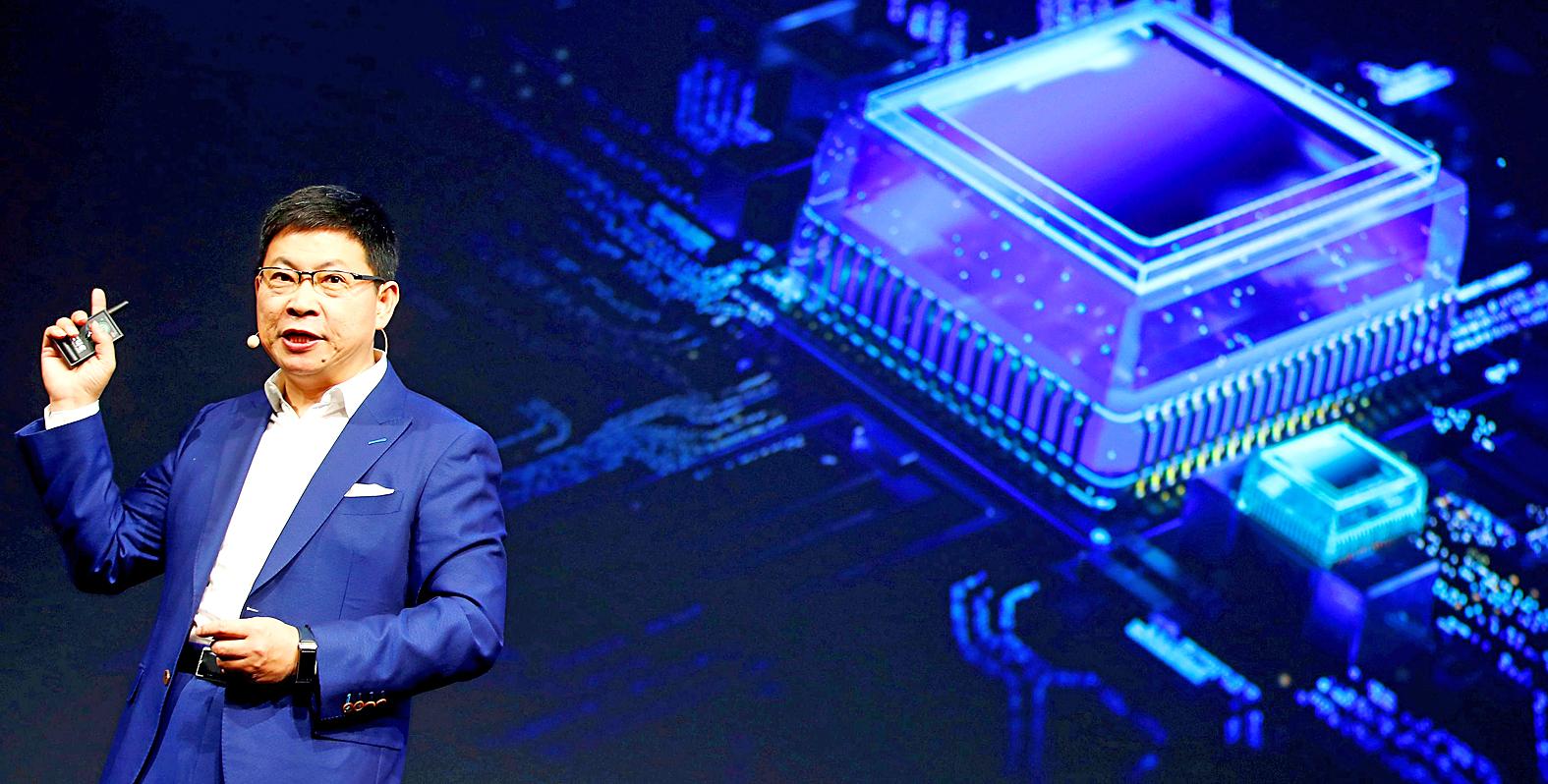Huawei Technologies Co (華為) has received approval to break ground on a £1 billion (US$1.2 billion) research and development site near Cambridge, England, even as the company’s future in the country hangs in the balance.
The Chinese telecommunications giant on Thursday received planning permission from South Cambridgeshire District Council to build the first phase of a major development that has come under criticism from British and US lawmakers.
The site was acquired in 2018 and would support 400 jobs across 50,000m2 of facilities, according to a statement from the company.

Photo: Reuters
It would become Huawei’s international headquarters for optoelectronics — a branch of fiber-optic broadband technology — company vice president Victor Zhang (張國威) said on a media call.
Huawei’s future in the UK is in question after the US ratcheted up pressure on its allies to break ties with the Shenzhen-based supplier and imposed sanctions that might threaten its silicon supply.
The British National Cyber Security Centre is due to issue a reviewed decision on Huawei’s role in the nation’s networks.
The review paves the way for a potential U-turn by British Prime Minister Boris Johnson, who in January approved Huawei as a supplier of 5G and fiber-optic components.
That sparked a rebellion in his party and an angry phone call from US President Donald Trump.
The council vote on Thursday was purely on planning policy and did not take into account politics or security.
To veto the investment on those grounds would require a decision by the central government.
Zhang said plans for the site were put in motion in 2017.
“Huawei could not have predicted the timing of today’s approval,” he said.
Still, former Conservative Party leader Iain Duncan Smith, one of the lawmakers pushing for Huawei to be banned entirely from the UK, criticized the council’s move.
“It is a naive and stupid decision, because it runs in the face of all of the evidence of the misbehavior by Huawei and the Chinese government,” he said via phone. “Huawei is an untrusted vendor and it’s clear South Cambridgeshire council have gone for the money.”

Among the rows of vibrators, rubber torsos and leather harnesses at a Chinese sex toys exhibition in Shanghai this weekend, the beginnings of an artificial intelligence (AI)-driven shift in the industry quietly pulsed. China manufactures about 70 percent of the world’s sex toys, most of it the “hardware” on display at the fair — whether that be technicolor tentacled dildos or hyper-realistic personalized silicone dolls. Yet smart toys have been rising in popularity for some time. Many major European and US brands already offer tech-enhanced products that can enable long-distance love, monitor well-being and even bring people one step closer to

Malaysia’s leader yesterday announced plans to build a massive semiconductor design park, aiming to boost the Southeast Asian nation’s role in the global chip industry. A prominent player in the semiconductor industry for decades, Malaysia accounts for an estimated 13 percent of global back-end manufacturing, according to German tech giant Bosch. Now it wants to go beyond production and emerge as a chip design powerhouse too, Malaysian Prime Minister Anwar Ibrahim said. “I am pleased to announce the largest IC (integrated circuit) Design Park in Southeast Asia, that will house world-class anchor tenants and collaborate with global companies such as Arm [Holdings PLC],”

TRANSFORMATION: Taiwan is now home to the largest Google hardware research and development center outside of the US, thanks to the nation’s economic policies President Tsai Ing-wen (蔡英文) yesterday attended an event marking the opening of Google’s second hardware research and development (R&D) office in Taiwan, which was held at New Taipei City’s Banciao District (板橋). This signals Taiwan’s transformation into the world’s largest Google hardware research and development center outside of the US, validating the nation’s economic policy in the past eight years, she said. The “five plus two” innovative industries policy, “six core strategic industries” initiative and infrastructure projects have grown the national industry and established resilient supply chains that withstood the COVID-19 pandemic, Tsai said. Taiwan has improved investment conditions of the domestic economy

MAJOR BENEFICIARY: The company benefits from TSMC’s advanced packaging scarcity, given robust demand for Nvidia AI chips, analysts said ASE Technology Holding Co (ASE, 日月光投控), the world’s biggest chip packaging and testing service provider, yesterday said it is raising its equipment capital expenditure budget by 10 percent this year to expand leading-edge and advanced packing and testing capacity amid strong artificial intelligence (AI) and high-performance computing chip demand. This is on top of the 40 to 50 percent annual increase in its capital spending budget to more than the US$1.7 billion to announced in February. About half of the equipment capital expenditure would be spent on leading-edge and advanced packaging and testing technology, the company said. ASE is considered by analysts